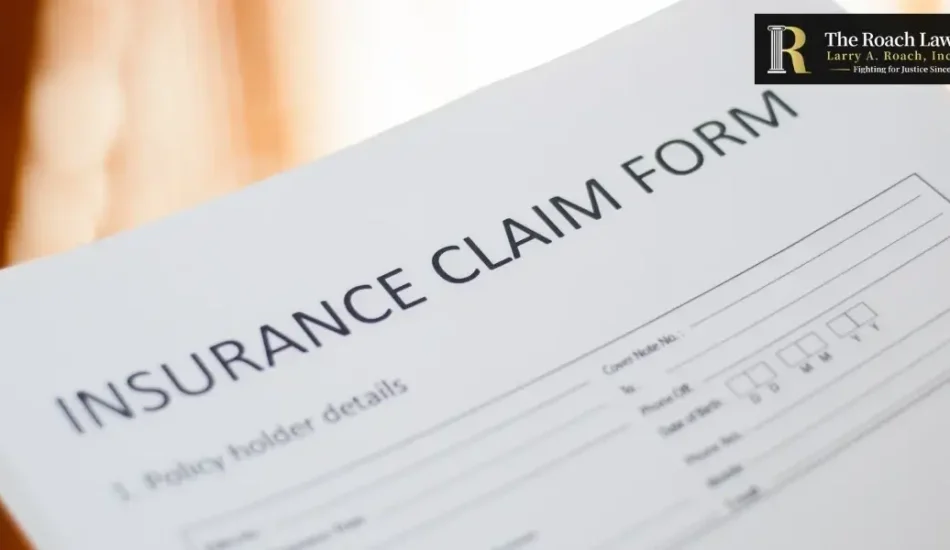How Long Does It Take to Settle a Car Accident Claim in Louisiana?

Car accidents leave people struggling with injuries, lost wages, and medical bills. You may be wondering, “How long does it take to settle a car accident claim in Louisiana?” The answer depends on many factors, but one thing stays the same: delays benefit the insurance company, not the person injured. Knowing what affects the process helps fight back against unnecessary waiting.
Factors That Affect Settlement Timelines
Several elements influence how long a car accident claim takes to settle. Some cases resolve quickly, while others drag on for months or longer. Liability disputes, injury severity, and insurance company strategies all play a role in how long a claim remains open.
When fault is unclear, insurance companies take longer to investigate. Adjusters examine police reports, witness statements, and other evidence before making a decision. If both parties claim the other is responsible, negotiations take longer. Severe injuries also extend the timeline. Settling too early risks accepting an amount that fails to cover ongoing medical expenses.
Insurance companies control much of the process and may delay payments to pressure claimants into accepting lower offers. Some disputes require litigation, which adds months or years to the process. A claim moves faster when liability is clear, medical treatment is complete, and insurance companies cooperate in good faith.
Legal Action and Settlement Times
Some cases settle through negotiations, while others require legal action. Filing a legal claim does not always mean a case goes to trial, but it does extend the timeline. Insurance companies often delay settlements once litigation begins, hoping to pressure the injured party into accepting less.
The legal process involves several steps that add time. Discovery requires both sides to exchange evidence, conduct depositions, and build arguments. If a court has a backlog, hearing dates push the process further. Even when a case moves forward, pre-trial negotiations continue, and many claims settle before reaching a courtroom.
Litigation becomes necessary when an insurance company refuses to offer a fair amount. While this approach takes longer, it may result in a higher payout. The decision to file a legal claim depends on the strength of the case, your willingness to wait, and the likelihood of securing a better outcome through legal action.
Insurance companies offer quick settlements, but accepting one may result in a lower payout. The first settlement offer usually reflects a low estimate of damages. It might not cover things like lost wages or the long-term effects of an injury. Once a settlement is accepted, the injured party cannot request more money, even if additional expenses come up.
Steps to Avoid Delays in a Claim
In general, a good way to avoid delays is to act quickly. The following are some actions you can take to avoid delays in a claim:
- Gather strong evidence early. The more documentation that’s available for your case, the faster it moves. Police reports, medical records, and witness statements establish fault and prove damages. Insurance companies request evidence before approving payments, and delays occur when information is missing.
- Complete medical treatment before settling. Finalizing a claim too soon risks accepting less than what injuries require. Some injuries worsen over time, and future medical costs add up. Waiting until treatment is complete helps cover all expenses in a settlement related to the accident.
- Respond to insurance requests quickly. Insurance companies use delays to their advantage. Failing to submit requested documents slows the process even more. Providing paperwork as soon as possible helps keep negotiations moving.
- Be cautious with quick settlement offers. Accepting a fast payout often means taking less than what a claim is worth. Insurance companies push low offers early in the process to close cases cheaply. Reviewing all options before accepting a settlement helps avoid financial loss.
Insurance companies work to minimize payouts. When an insurer refuses to negotiate fairly or delays payment, legal action may be necessary. An attorney pushes back against unfair tactics and moves the process forward.
FAQs
Q: What Factors Affect How Long a Car Accident Claim Takes to Settle in Louisiana?
A: The factors that affect how long a car accident claim takes to settle in Louisiana include disputes over fault, the severity of injuries, and other delays. Fault conflicts slow the process, especially if the insurance companies disagree on liability. The severity of injuries also matters since claims involving long-term medical treatment take longer to resolve. Insurance company delays can create additional setbacks.
Q: How Does Louisiana’s Fault System Impact the Settlement Timeline?
A: Louisiana’s fault system impacts the settlement timeline by slowing down the process when conflicts assigning fault arise. This system allows insurers to reduce payouts based on the injured person’s share of the blame. Settlement negotiations take longer when fault percentages become a point of contention. If the insurance company refuses to accept full liability, the injured party might need to file a legal claim to recover the full amount.
Q: Does the Severity of Injuries Influence How Long a Claim Takes?
A: The severity of injuries influences how long a claim takes. Minor injuries resolve faster since medical treatment ends sooner, allowing for a quicker assessment of damages. Serious injuries require ongoing care, and settling too early risks undervaluing the claim. Insurance companies often wait for a final prognosis before making a settlement offer, especially if future medical costs are still uncertain.
Q: What Role Does Insurance Coverage Play in the Length of a Settlement?
A: The role that insurance coverage plays in the length of a settlement is significant. If the at-fault driver carries minimal coverage, negotiations stall when the policy limits fail to cover all damages. Uninsured or underinsured motorist claims take longer because the injured party must go through their own insurance company, which may dispute the amount owed. Policy exclusions, claim denials, or paperwork delays can also slow the process.
Get Answers for Your Claim
Insurance companies use delays to their advantage, but accident victims do not have to accept unnecessary waiting. The right legal strategy can force insurers to act in good faith and prevent them from undervaluing claims. A strong case backed by clear evidence puts pressure on insurers to settle for the right amount. Schedule a consultation with The Roach Law Firm to push for an appropriate settlement.

